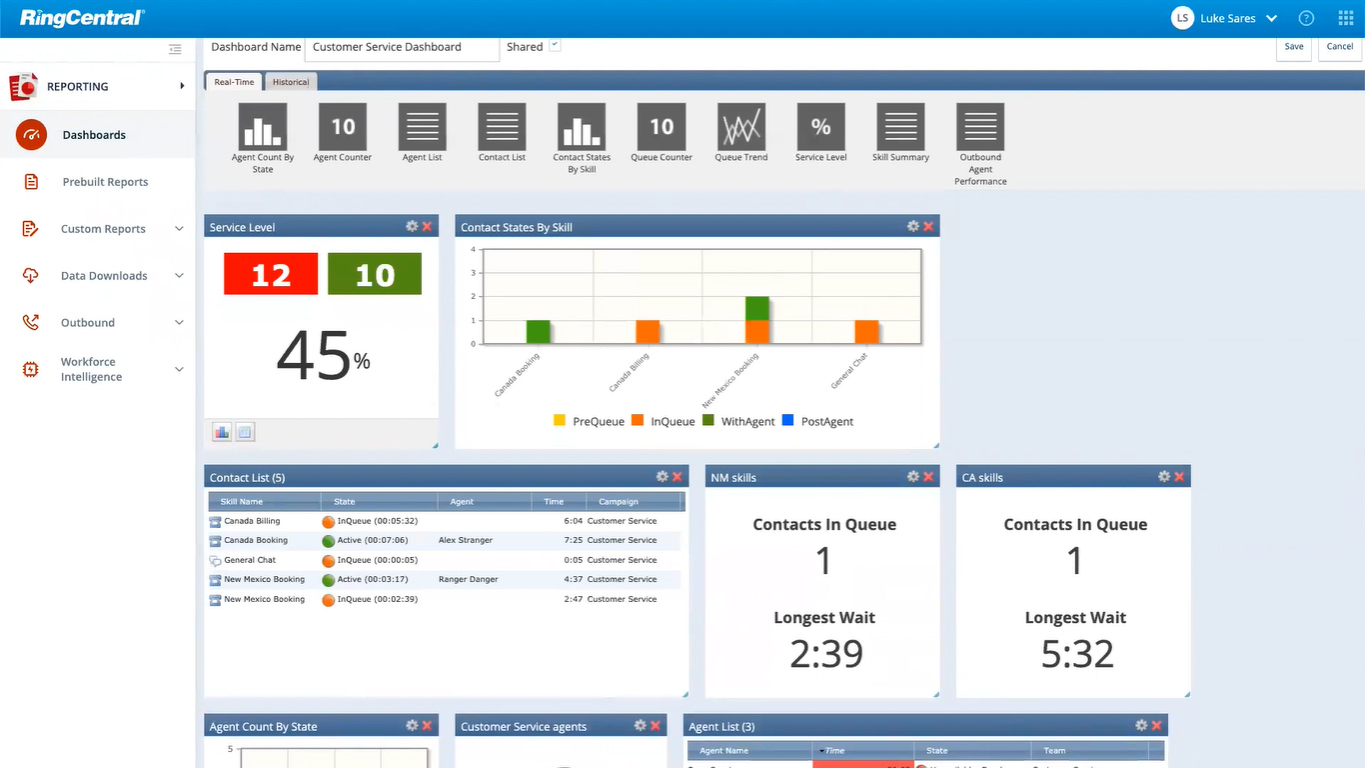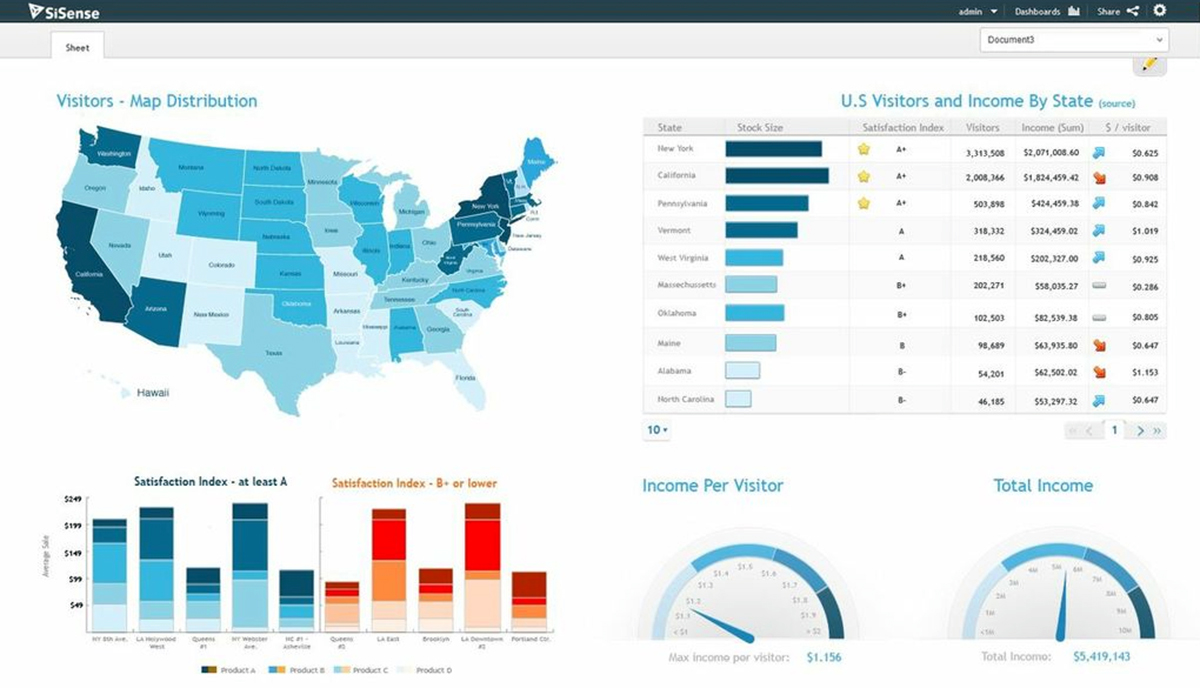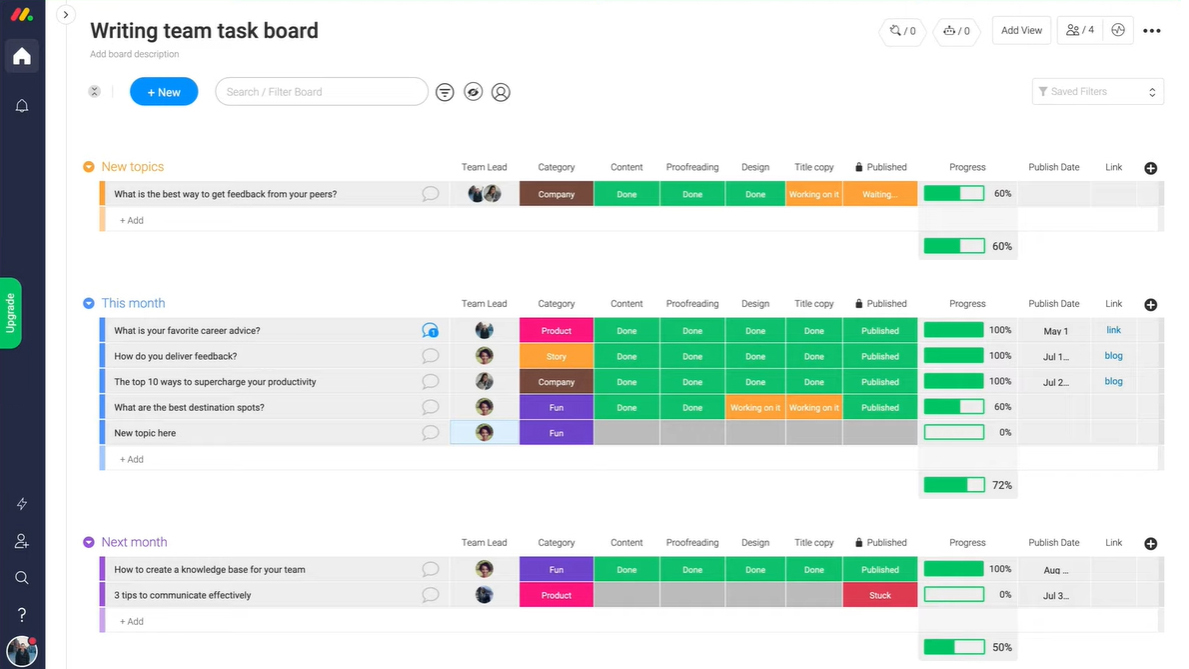Modern problems require modern solutions, and employing the help of B2B software systems is no longer a trend but a norm. According to an article, software as a service can increase a company’s growth rate by 19.6%. We have now reached the point where software solutions like CRM, project management, marketing, sales, etc., are no longer just a “business advantage” but “business essentials.”
The question for entrepreneurs, however, is no longer about their willingness to change the way they do business, but how much change are they willing to implement. Many have already made the transition from traditional to modern business operations. But for some companies, the rapidly changing industry calls for more changes than they are willing to make. The downside to this is that their business can suffer because they are either afraid to take risks, or they just do not want to explore new and better options.
Some businesses refuse to embrace modernization for different reasons. Some have trust issues with technology, while some just do not know where and how to start properly. Some entrepreneurs have fostered the idea that modern business solutions are a luxury they can live without. While it is true that their business can survive, it may not have the capability to thrive.
In the age of digital platforms, the route toward business growth is paved with B2B software solutions. In this article, we will help you become familiar with the nature of B2B software and its benefits and risks. We also have a list of software systems you may want to learn more about and see how they can help you improve your business operations.
What Is B2B Software?
B2B software is a suite of software solutions that cater to any size of business from different industries. B2B software solutions can either be cloud-based or on-premise applications. Although both deployments have their pros and cons, there is a growing preference for web-based platforms because of accessibility and flexibility. Server maintenance is also no longer necessary as it will be done on your provider’s end.
Different B2B software serves different purposes. They, however, are all geared toward streamlining business operations, improving productivity, boosting customer satisfaction, and increasing ROI. While a single B2B software can help resolve some of your business operation flaws, it can work better when integrated with other software solutions, creating a unified system for a fully optimized business operation.
List of Best B2B Software
There is an extensive list of software solutions, and here are some of the leading B2B software that you may find essential for your business:
- monday.com: Project management fails can only result in company loss. While project management software solutions are not 100% foolproof, leading software like monday.com is designed to improve your team’s performance with automation and collaboration tools.
A powerful project management platform, monday.com, provides a robust platform for both office-based and remote teams to work efficiently. Task progress and project status are also easily monitored, and reporting and analytics are detailed, organized, and easily generated. It also integrates with an extensive list of third-party applications like Slack, Zoom, Jira, Asana, and more. Its pricing varies depending on the number of users for each plan. For a maximum of five users and 5GB of storage, you can get monday.com at $49/month.
- FreshBooks: An accounting software that mainly targets small businesses and teams. FreshBooks provides essential accounting tools, including invoicing, expenses tracking, payment processing, and detailed reporting. As an all-in-one software solution for a small business’ accounting needs, FreshBooks also allows you to create rich proposals, electronically sign documents, automatically compute tax, and bill customers in different currencies. Pricing for FreshBooks starts at $6/month, which covers five billable clients. It is also available on mobile.
- Yo!Kart B2B: An eCommerce marketplace solution that can help you build a B2B website like Lazada or Alibaba, where multiple suppliers can sell to businesses at the buyer end. The software has B2B-specific functionalities that facilitate commerce between businesses online. It has an in-built RFQ module, features to hide prices, offers bulk discounts, minimum order quantity, part payments for buyers, a direct communication channel between buyers and sellers, and other features that cater to key B2B eCommerce requirements. Additionally, personalized individual vendor storefronts, multiple business APIs pre-integrated, and a rich-features product catalog in Yo!Kart B2B further assists in conducting eCommerce operations. Furthermore, the customizable solution can be integrated with ERP, CRM, and other B2B software that can make it a one-stop solution to manage your business. The prices for the solution start US $1499 onwards. The price includes a one-time payment for the software and its source code ownership along with up to one year of free technical support.
- NetSuite ERP: A cloud-based ERP solution that scales with your business from its startup status. NetSuite ERP is a leading financial management solution that automates the end-to-end process of order-to-cash transactions and gives you clear visibility into your supply chain. Among its key features are accounting, payment management, demand planning, inventory and warehouse management, manufacturing, billing and invoicing, and others. When it comes to pricing, NetSuite ERP is quote-based.
- Wrike: Another leading B2B software, Wrike is an agile collaboration solution that provides a fully optimized single workspace for different teams or members of an organization. Its features include a user-friendly design, interactive timeline, workload management, task discussion, task management, task prioritization, document sharing and collaboration, and more. Wrike’s price starts at $9.8/month for every user, but it has a free version for small teams with a maximum of five members.
- HubSpot CRM: A free CRM with efficient but straightforward features, HubSpot CRM is an ideal software solution for customer service teams, marketers, and salespeople, including managers and entrepreneurs. It has a clean and straightforward interface that gives you a complete and clear view of your sales pipeline with its pipeline management, deal tracking, company insights, and reporting dashboards. Agents are also equipped with essential tools, such as prospect tracking, live chat, canned snippets, and email tracking and notifications. When it comes to integrations, HubSpot CRM seamlessly integrates with other HubSpot applications and other third-party solutions like Salesforce, Shopify, and NetSuite.
- LiveAgent: This customer is equipped with ticketing, live chat, and automation tools to help small and growing businesses provide good customer experience. LiveAgent is completely free for businesses that only need one email address, one chat button, and one phone number. But if you would like to upgrade to a full-sized ticketing solution, pricing starts at$15/month for every agent.
- TalentLMS: As your business or team grows, getting more people in is expected. What comes after bringing in new employees or team members, however, is training them. This is the time when you can rely on a learning management system. TalentLMS is a full-featured LMS solution for small businesses. Its course management features include tools for creating courses, assessment engine, mapping your trainees’ learning paths, file storage, and more.
TalentLMS comes with a videoconference support feature, which works with integrated videoconference tools. It supports multiple languages, iOS, and Android devices, and is also enterprise-ready. As for the pricing, TalentLMS is completely free for a team of five users and a maximum of 10 courses. Paid plans start at $59/month, which accommodates a maximum of 40 users.
- Zoho Social: Marketing software is arguably the most widely used B2B software, and for a very good reason–it taps into your target market in ways that are not possible with traditional marketing methods. Zoho Social is one of the leading marketing software equipped with robust features to automate and optimize your marketing process.
A multi-channel marketing platform, Zoho Social aims to increase your social media presence and reach your target audience. Aside from multi-channel marketing, some of its features are keyword tracking, brainstorming tools, sharing and collaboration, social media metrics, automatic scheduling, repeat posts, and more. Pricing starts at $10/month for one brand, a maximum of two members, and seven channels.
- Zendesk: Customer service is sometimes just a set of tools away from being satisfactory to customers. You may have great agents, but without the right platform, you may not be able to address customer concerns, issues, and inquiries in a proper and timely manner. Zendesk bridges the gap between your customer support agents and customers by establishing clear and fast connections using different channels (web, SMS, phone, chat, and social media). Pre-built with SugarCRM and Salesforce, Zendesk integrates with third-party applications. Zendesk’s pricing starts at $5/month for every agent.
- BambooHR: The HR software build for SMBs, BambooHR, is a cloud-based HR solution for managing your workforce. BambooHR keeps track of the entire employment life cycle from the application stage, onboarding, and onward. Among its prominent features are its easy to use interface, goal setting/tracking, absence management, accurate reporting, employee portal, and more. Pricing for BambooHR is quote-based.
- Pipedrive: The sales process does not have to be intimidating and complicated, and Pipedrive is one of the sales software that keeps things simple and straightforward. Pipedrive uses an intuitive chatbot that automatically feeds leads into your system and handles meeting schedules. You can also customize web forms, which also deliver leads’ information straight into your pipeline. Sales pipelines are also highly customizable, and the automation features include the assistance of an AI-powered sales mentor that gives tips and ideas on how to optimize your and your teams’ performance.
Other Pipedrive features include tracking communications, in-depth insights and advanced reporting tools, mobile support, multiple integrations, and more. Pricing starts at $15/month.
- Sisense: This business intelligence and analytics application combines powerful tools and easy to use interface in one platform. What Sisense does is collect relevant data from your sources and automatically consolidates and converts them into valuable insights for your company. Veering away from boring data presentations, Sisense opts for highly visual dashboards that are not only customizable but also shareable. Sisense pricing model is quote-based.
- Microsoft Azure: Microsoft Azure is a cloud-based sophisticated system for IT professionals and developers for creating and deploying enterprise applications. It is also capable of running large scale programs. Among its features are its capability to build websites, migrate applications as well as infrastructure, deploy virtual machines (Windows Server and Linux), and more. As for its cost, Microsoft Azure if offered in quote-based plans.
- Shopify: Having a good platform is essential to ecommerce, and Shopify offers the tools necessary to create your online store. Shopify provides a cloud-based website builder, standard and advanced shopping cart tools, access to 70 payment gateways, order fulfillment, refunds, mobile support, and more. When it comes to pricing, Shopify starts at $29/month.
- RingCentral: This is a cloud-based phone system that delivers telephony, SMS, video conferencing, and online faxing in a single platform. RingCentral is also easy to set up and accessible through any devices as long as there is an Internet connection. This communications solution also provides in-depth and real-time insights into your team’s performance. Pricing for RingCentral starts at $29.99/month for every user.

RingCentral’s contact center dashboard gives a real-time overview of your agent’s on-call activities and performance.
Factors to Consider in Choosing a B2B Software
Choosing a B2B software requires considering several factors but mostly recognizing your business needs. Different software caters to different types of industries, business size, and necessities, but the following can help you get started what things to consider in choosing the right B2B software:
- Integration capabilities. Is the software compatible with your existing systems and other third-party applications you are using?
- Functionality. Are the features included in the software necessary for you to optimize your business operations?
- Scalability. Can the software adapt to the changes in your business operations as you grow?
- Cost. Is the software a good value for money? If the software has a free version, trying it first can help you assess firsthand if upgrading to paid subscriptions will be worth it if the free version does not have all the features you need. Taking advantage of free trials is also highly recommended.
- Security. Cloud-based software solutions can be subject to cybersecurity threats. Make sure that the vendor of the software you plan to purchase is not only compliant with data security and privacy guidelines but also has additional security features in place.
- Vendor lock-in strategy. Review your vendor’s lock-in policy to make sure that you will not be saddled into a long-term exclusive deal. Otherwise, you may end up paying for the software service even when it no longer works for your business.
Latest Trends in B2B Software
Compared to B2C software systems, B2B software is way behind in adapting a customer-first mindset. This, however, is not a direct comparison as the B2B market has a more complex structure compared to the B2C industry. But the continuously evolving industry of B2B software technology is now starting to shift toward a more customer-centric culture. Below are two of the latest developments being adopted by B2B software vendors and developers:
- Self-service customer support. End-users are developing a growing preference for customer self-service. Reaching out to the customer support team is no longer the first option as more customers would rather conduct their own research first. A self-service knowledge base is a perfect example here. A knowledge base is like a more comprehensive version of an FAQ section. It is where customers can find solutions to common issues, such as basic troubleshooting steps, product documentation, and more.
- Machine learning in analytics. AI technology is making its way into different software systems, especially business intelligence. With data now coming more from more digital sources (websites, social media platforms, etc.), data gathering, processing, and conversion to valuable insights are also getting more sophisticated with the help of AI technology, such as machine learning and AI-assisted analytics.

Sisense leverage AI, machine learning, and analytics when it comes to gathering and consolidating data.
Potential Issues in B2B Software
Software systems, regardless of how sophisticatedly built and designed, are not 100% perfect. When it comes to B2B software solutions, below are some of the issues you may encounter:
- Data protection. Data security has always been one of the major concerns, especially for web-based software systems. With all your data hosted in your vendor’s cloud server, your fear of unauthorized data access is justified. This is why it is necessary to thoroughly review your vendor’s data security policies. Familiarizing yourself with the technology you are after can also help you ask the important questions. The goal here is to make sure that you understand how your company’s data will be handled, how does your vendor protect your data, and what are the security measures in place in case there is a threat.
- Software stability. How stable is your software system? Can it withstand the sudden changes in your business operations and its own updates? A software’s reliability is anchored on how stable it can be when the threat of a system downtime–or worse, an outage–looms around the corner. Unfortunately, system failures are unpredictable and can happen even to the organizations that you expect to have the most stable systems in place. A good B2B software provider, however, understands this dilemma and will have policies on how to handle these circumstances while keeping all your data intact and safe.

